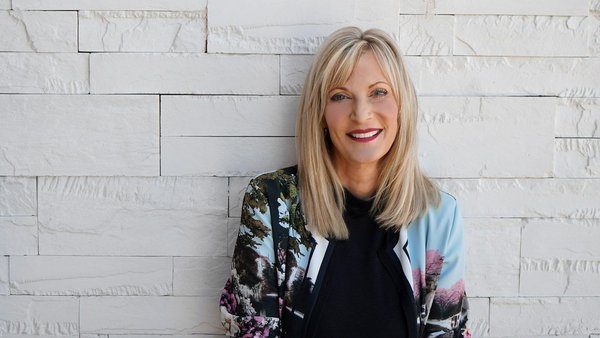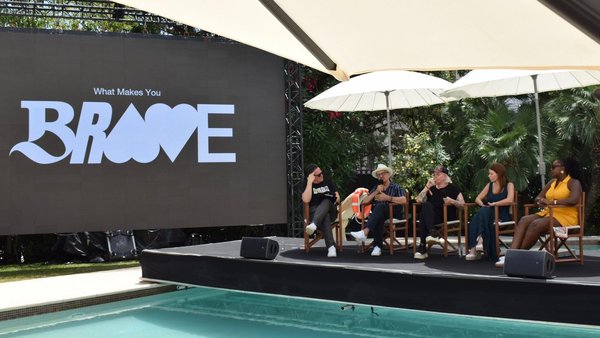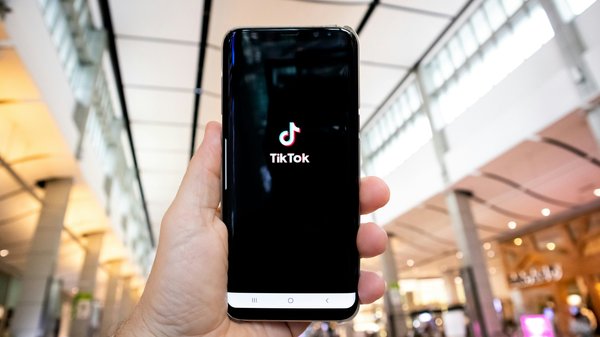Promoted content
Traditional advertising is dead /
LE BOOK and Contagious hosted a panel discussion with industry experts at the Cannes Lions International Festival of Creativity to address some provocative questions about the ad industry.
Traditional advertising is dead. What is traditional advertising anyway? LE BOOK, which helps prestigious brands and agencies find creative suppliers through its CONNECTIONS events, hosted an event during Cannes Lions with Contagious to address these provocative questions, with the help of a panel of experts well-placed to discuss the big changes shaking up the industry.
Katrina Stirton-Dodd, Contagious’ editor-at-large, moderated the panel discussion and she kicked off by asking Leonardo Barbosa, executive creative director at Dentsu, New York, what trends felt the most profound for his team and his clients. He responded by reflecting on the topic of the talk.
‘I’ve been hearing that traditional advertising is dead since I started in advertising 20 years ago,’ he said. He argued that traditional advertising has never been a thing, since it’s one of the sectors that undergoes the most change. But one thing that doesn’t change in advertising, he said, is the value of a good idea.
Barbosa then flagged digital media as one of the biggest areas of industry change he had witnessed. Digital can be scary, he said, because of its almost unlimited creative potential. He referenced the work from creative agency Atlantic, in which they released a Blockbuster ad on VHS to coincide with the Super Bowl, and said that having a Super Bowl ad without being at the Super Bowl would have been unthinkable a few decades ago. He added that another big change he had noticed is how interactive advertising has become, especially as advertisers have harnessed gaming.
João Coutinho and Marco Pupo, founders of Atlantic, New York, were then asked for their perspective on what had killed traditional advertising. Pupo said that ‘traditional advertising is dead, but maybe it’s still breathing.’ He pointed to the resurgence of radio, which had been declared dead but has since had a resurgence. He also pointed out London agency Uncommon Creative Studio’s print campaign for British Airways. ‘Maybe the way of thinking that there are only a few ways of doing advertising is dead, but you can still do very good traditional advertising that is going to work.’
Coutinho added that these traditional modes were changing, pointing out that while people may not buy newspapers anymore, they do still read the news online. He disparaged clients who invested millions in new trends that don’t always last, pointing out that on a recent visit to SXSW, they had not seen a single talk on AI.
Stirton-Dodd then turned to Mariasole Pastori, Executive Director of Diorama, a 3D and digital production company.
She asked Pastori how she went about finding talent with the right skills to make the most out of new technology. Pastori noted the difficulty of finding experts that are both creative and technical. She warned about the limitations of trusting new technologies completely, and touted the enduring importance of human input. ‘What’s really difficult to find in any creative industry is good taste,’ she said, adding that ‘technical skills can always be honed and developed.’
Barbosa agreed. ’I think it’s impossible for AI to have a really good idea at this stage,’ he said. However, he did point out that AI was useful for taking on more rote tasks, such as helping create social posts.
Stirton-Dodd added that AI are tools that need people to operate. She then turned to the final panellist, Antonio McDonald, founder of KUAMP, a production company based in New York. Stirton-Dodd asked McDonald how traditional firms are changing in pursuit of the goal of appealing to diverse consumers.
He emphasised the primacy of top-quality work. ‘I think the key right now is to embrace community.’ He said. ‘Humanity, authenticity, whatever race you are, you can connect with that.’
He added that embracing diversity and inclusion is necessary because the market is calling for it, noting that people across the industry were often afraid to talk to each other about difficult topics. The key to overcoming this, in his opinion, is trust – building relationships over the long term and offering mutual support.
He ended the talk on a hopeful note, summarising the feelings of the whole panel: ‘I think the number-one goal is putting the humanity back into everything we do.’
Want more of the same? /
We don’t just write about best-in-class campaigns, interviews and trends. Our Members also receive access to briefings, online training, webinars, live events and much more.




